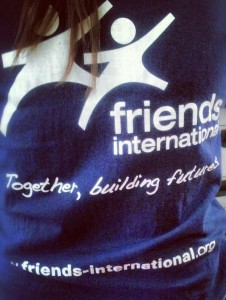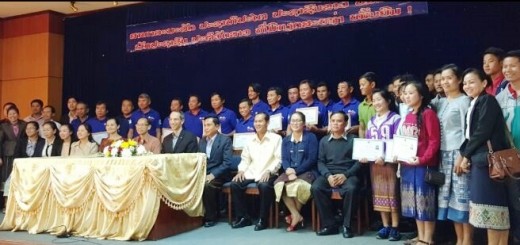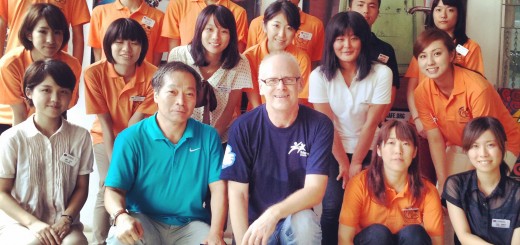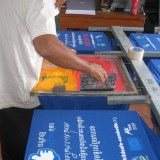Orientation – Day One
Second post from our two young British Communications volunteers, Kesh and Thea. It’s time for them to find about the field work that our programs undertake…
‘ “Hey Friend!”, “You want to be my friend?” It was our first day wearing our Friends T-shirts and we were attracting a lot of attention as we made our way to Mith Samlanh to begin orientation. It was quite the day of firsts, as we had the new experience of motor biking through Phnom Penh with the Riverside team. We travelled to the outskirts of the city where a slum town had been built along an old railway line. Leaping over holes in the wooden bridge that connected the houses and dodging vicious looking cats, we were taken to various houses and small businesses in the community. Everywhere was bustling: one woman vigorously washing her clothes in an iron bucket, another arranging rice to be toasted by the sun. Back at the entrance to the town, a green mat had been laid out, covered in toys and books. The local children flocked, completely absorbed in their play until it was time to line up for the promised fruit. As soon as we dismounted our bikes at our next roadside spot, we were pounced upon by laughing children, hugging us and shoving flowers into our helmets. After they had exhausted some energy, dancing around the stretch of grass, all ten of them were herded into a TukTuk to take them back to Mith Samlanh. We were struck by the difference between their eager reception of us and the reserve of the town children we had met earlier.
Rocking up at F-I headquarters in the afternoon, expecting a presentation at the office, we were quickly herded into a TukTuk of our own for a seemingly never ending journey. To the surprise of both parties, we were to be shown round by the Cham Chao team. After a quick tour of the office, it was back on the motorbikes for a dash through the rural paddy fields to a small village. Hearing a mournful dirge, we were told that a death had occurred at one of the houses, indicated by a white flag in the shape of a crocodile. We pulled up in the yard of one of the houses. A group of shirtless men sat in a circle, drinking and playing cards whilst women and children reclined under the shade of the house. We were introduced to a previous Mith Samlanh student, who proudly presented us with his baby son. Meeting his father and hearing about the death of his brother, who used to live there as well, we got a strong sense of the importance of community. Everyone eagerly rush to chat to the Outreach team, seeing them as friends as well as people who brought toothbrushes and contraception. Though the people we met seemed cheerful, as each was introduced, we were informed about their drug habits. On the way back, the team would point out houses in reference to the substance abuse of each inhabitant – a grim reality, the impact of which they tried to constrain with regular medical checkups and friendly advice.’
